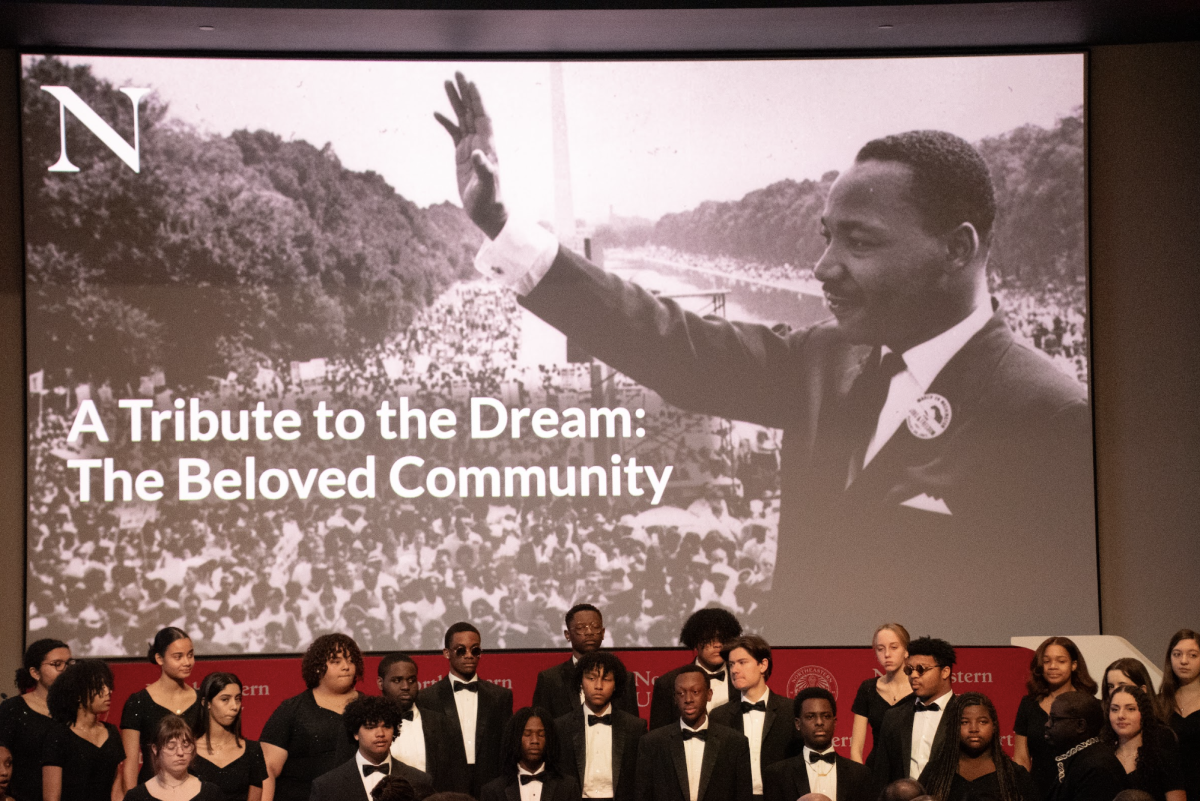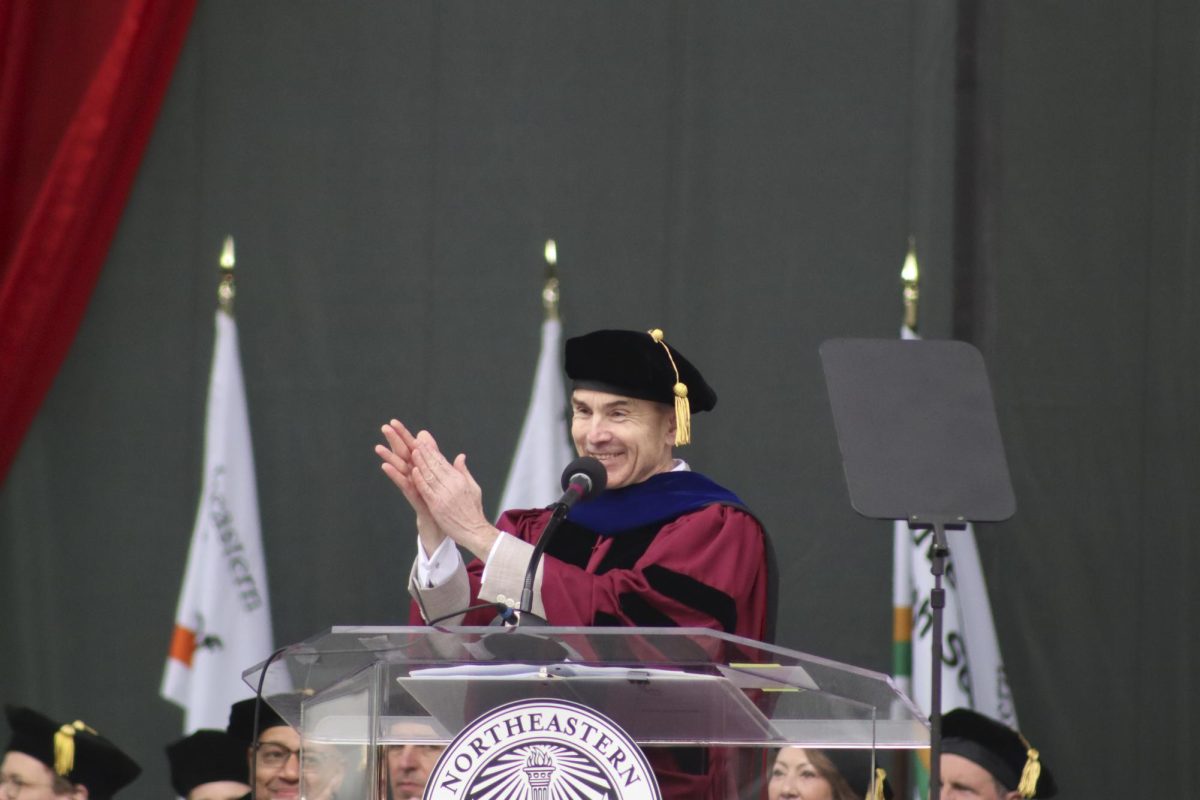By By Jenna Duncan, News Staff
‘ Despite the New England Patriots’ Tedy Bruschi speaking Monday night, about 150 people instead gathered to see Harvard Professor Alan Dershowitz screen his new film, ‘The Case for Israel,’ and have a debate with attendees about the state of Israeli and Palestinian relations.
This is the only college screening that Dershowitz has attended, and was sponsored by Students for Israel at Northeastern, College Democrats, College Republicans, Political Science Students’ Association and Northeastern Hillel.
The event began by playing the film, which was broken into six sections:’ J’accuse (outrage against a powerful person), Historical Facts, Democracy and Difficult Choices, Justice, Threats and Fortitude. These six sections outline why Dershowitz believes Israel should be its own state, and why he feels it is reasonable.
J’accuse opens the film with outrage directed toward Jimmy Carter, who is avidly pro-Palestine, and whom Dershowitz blames for ruining Israel and Palestine’s chances of peace. Historical Facts briefed viewers on the history of Palestinian and Israeli relations, and Democracy and Difficult Choices showed how the Israeli government works. The last three focused on how Israel is singled out, threatened by terrorists and more accepting than Palestine.
‘This isn’t a film for extremists,’ he said later during the question and answer session. ‘For me, it’s making the case for people that have an open mind about this.’
After the viewing, Dershowitz came on the stage and challenged students to ask their hardest questions.
‘Who wants to ask the first hard, critical question?’ he asked the audience.
The questions ranged from the film’s target audience to asking what he would do if he were a Palestinian. He first became heated when a student suggested Palestinians fought because they were oppressed or poor.
‘So people that don’t have jobs can blow up babies?’ he said. ‘Terrorism is targeting civilians for killing.’
From here, he argued that while Israelis try to protect people by having bomb shelters everywhere, Palestinians are more willing to sacrifice their own and do not put up such defense mechanisms for the public.
‘You can’t measure the number of deaths because it won’t be proportional,’ he said. ‘Israel does everything in its power to preserve human life.’
In response to the next question, he also argued that Israel will do anything in its power to end the conflict, including giving up Jerusalem.
From here the topics drifted toward the workings of Israel as a democracy, and how it is viewed by the world. One of the main arguments during this, as well as the film, is that Israel is the only democratic nation in the Middle East, comparing it to the government in Palestine that can murder homosexuals.
He then discussed how in Europe there are many human rights campaigns focused on being pro-Palestine, but they don’t care about any other human rights issues like genocide in Darfur. This, he said, proves that it is only because people are against a Jewish state existing.
‘When the French care only about the Palestinians, its pure anti-Semitism,’ Dershowitz said.
The session was concluded by a student asking when the hatred would go away, and Dershowitz shared a story about attending an orchestra performance about a year ago where the orchestra was composed half of Israelis and half of Palestinians.
‘For many Israelis and Palestinians, it was a sign of what could be,’ he said. ‘Will it happen overnight? No.’
Despite Dershowitz’s tough and confident attitude, junior electrical engineering major Bruce Kaufman said he wasn’t fully convinced by Dershowitz.
‘I think he glossed it over,’ he said. ‘But he did say that Israel isn’t perfect, and there’s some obvious controversy.’








